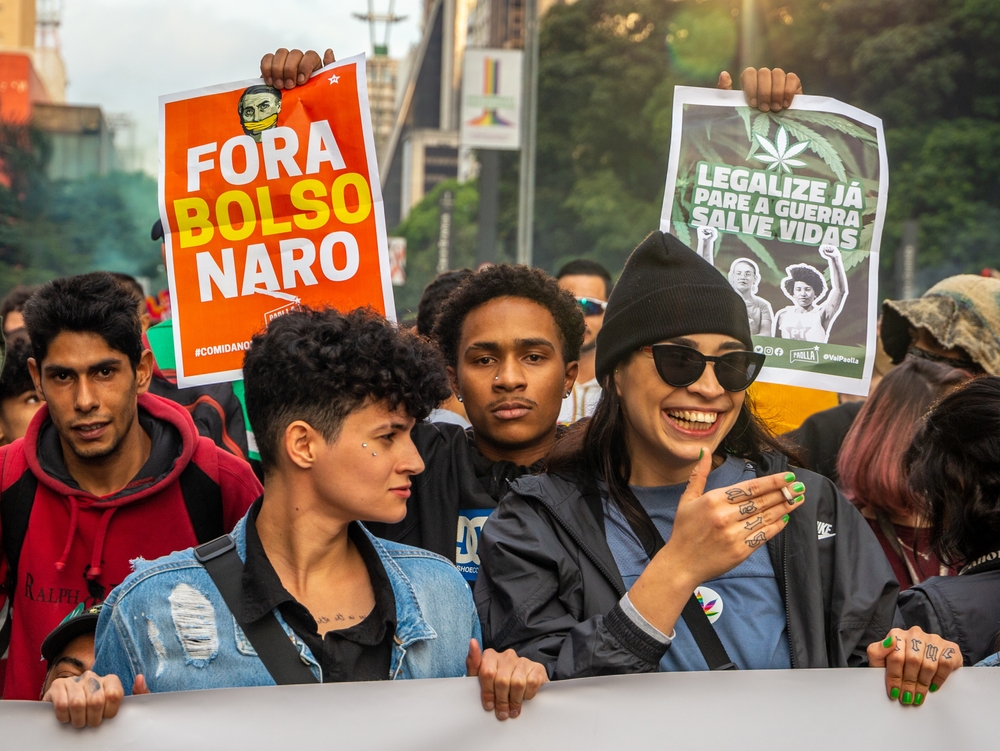If you have been following TalkingDrugs’ cover of Brazilian drug policy in these last twenty-four months, you must be well acquainted with the current government’s efforts to hinder drug policy reform and, more specifically, with its disinformation campaign against medical cannabis. From publishing primers that claim medical cannabis does not exist, to blocking the medical cannabis bill from following to the senate for final approval, the soon-to-be former president Jair Bolsonaro, his cabinet ministers and allies have not spared any efforts to complicate access to this life-restoring medicine as much as possible.
The latest attempt has been led by the Federal Council of Medicine, which is ideologically aligned with the current government. Last October, the council banned physicians from prescribing CBD to adult patients, and restricted prescription to children and adolescents for a limited number of conditions.
The CBD ban lasted less than two weeks before backfiring by generating a lot of public criticism. Physicians who prescribe CBD publicly asserted that they would keep on prescribing the medicine despite the Federal Council’s authoritarian attempts to restrict it. In challenging the resolution, these physicians would act in civil disobedience but, nonetheless, would still be abiding by the Hippocratic Oath. Last year, Dr Carolina Nocetti, a physician who pioneered cannabis therapy in Brazil, told TalkingDrugs that it is within every physician’s professional and ethical duty to relieve patients’ suffering; declining to prescribe cannabis for those who stand to benefit from the medicine goes against the profession’s ethical code.
As Dr Nocetti reminded us, “We have scientific studies about the benefits of cannabis therapy, and it is a physician’s obligation to sit down and study about it, as much as it is our moral obligation, as human beings, to bring relief to those who need relief. It is essential for any government to seek the best quality of life for its citizens. Within the Code of Medical Ethics, there is a part aimed at beneficence and non-maleficence, and these are the two ethical principles that need to be considered in decision-making.”
The government’s crackdown on further CBD prescriptions seems to have triggered a new wave of events and activities to bring medical cannabis to more patients than ever before. After the lift of the two-week ban, the National Health Agency authorised the importation of the first batch of CBD flowers for medical purposes from Uruguay. It has also authorised the production of a new CBD oil, which will be the twenty-third medical cannabis product manufactured in Brazil. The civil court of Belo Horizonte, Minas Gerais, also determined that a health insurance company must cover the costs of medical cannabis for the treatment of a patient’s anxiety disorder, which will also be the first time that cannabis will be legally prescribed for treating anxiety in Brazil. City councillors in Salvador, Bahia, have filed a bill that aims to facilitate the free distribution of CBD for patients. And in a historical decision that can be a major step for the development of cannabis-based medicine and treatments in Brazil, the National Health Agency granted researchers at the Federal University of Rio Grande do Norte authorisation to cultivate indoor cannabis for the study of neurological disorders. This is the first time that the agency grants an authorisation to cultivate cannabis for research purposes.
Last but not least, in the last cycle of elections, Brazilian constituents elected eleven lawmakers that are members of the cannabis caucus: six at the state level and five at the federal level. The parliamentary front to legalise medical cannabis is gaining more and more momentum, and this wave of support might influence the president-elect Lula to rethink drug policy, starting with the nation-wide legalisation of medical cannabis after his public demonstration of support for civil society activists for drug policy reform.
One can only hope that this green wave becomes a tsunami that will wash away outdated and unjust drug policies. And, frankly, a wave the size of a tsunami is what’s needed to drastically change the Brazilian drug landscape, and leave no stone unturned.


